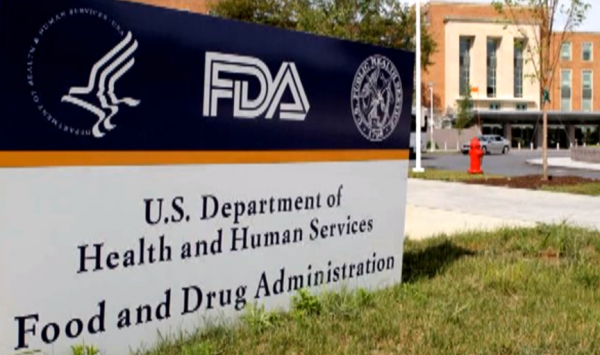Dr. Morton Walker's "DMSO: The New Healing Power" looks at a controversial cure stalled by regulation
- DMSO is a versatile substance with pain-relieving, anti-inflammatory and cell-restorative properties, but its medical use remains controversial due to regulatory restrictions, as outlined in Dr. Morton Walker's "DMSO: The New Healing Power".
- Despite anecdotal success in treating conditions like arthritis, burns and even cancer, the FDA has largely banned DMSO for human use (except for interstitial cystitis) due to inconclusive safety concerns from animal studies.
- High-profile cases including a former governor's wife with bone cancer and patients avoiding surgeries highlight DMSO's rapid and dramatic effects, yet these remain unofficial due to limited FDA approval.
- While lab studies (e.g., Dr. Charlotte Friend's cancer research) and patient testimonials support DMSO, the FDA demands rigorous trials, dismissing some findings as nonspecific. Politicians like the late Oregon Sen. Mark Hatfield have pushed for legalization, criticizing bureaucratic delays.
- The DMSO debate reflects the clash between innovation and regulation — patients and advocates argue for access based on real-world results, while the FDA prioritizes stringent scientific validation. Its future as a mainstream therapy remains uncertain.
Dimethyl sulfoxide (DMSO), a colorless liquid with remarkable healing properties, has been both celebrated as a medical breakthrough and mired in controversy. Dr. Morton Walker's book "
DMSO: The New Healing Power" explores this paradoxical substance.
Walker details DMSO's potential to alleviate pain, reduce inflammation and even reverse cellular dysfunction. He also examines the regulatory hurdles that have kept it largely inaccessible to the public.
The story of DMSO's medical potential gained national attention through the experience of former Indiana Gov. Dr. Otis R. Bowen, who led the Department of Health and Human Services under President Ronald Reagan. Bowen admitted to using DMSO – illegally obtained from a veterinarian – to relieve his wife's excruciating pain from terminal bone cancer.
The substance worked within minutes, yet its use in humans was banned by the
Food and Drug Administration (FDA) at the time except for treating interstitial cystitis – a rare bladder condition. The ban stemmed from concerns about side effects observed in animals, such as cataracts in dogs, despite a lack of conclusive evidence proving harm in humans.
DMSO's versatility is striking. It functions as an antibacterial, antiviral and antifungal agent while also acting as a vasodilator to improve circulation. It softens scar tissue, soothes burns and reduces inflammation in conditions like arthritis, bursitis and tendinitis.
Perhaps most compelling is its ability to restore cellular function,
making it a holistic treatment rather than a conventional drug. Millions worldwide have used it safely to treat ailments ranging from sports injuries to mental retardation, yet its legal status in the U.S. remains restrictive.
The FDA's reluctance to approve DMSO for broader use has forced many patients to seek it as a last resort. Marjorie Saloman, a psychologist facing a hysterectomy for cervical issues, avoided surgery after topical DMSO application eliminated her pain and reversed her condition.
Anna Goldeman, suffering from bursitis and phantom limb pain after an amputation, found complete relief after using DMSO. Similarly, Lucas Sheinholtz, plagued by rheumatoid-osteoarthritis in his knees for over a decade, walked without a cane within minutes of applying the substance.
Despite these anecdotal successes, the FDA maintains that rigorous clinical trials are necessary to validate DMSO's efficacy. A study by Research Industries Corporation demonstrated improvement in both hands of patients – one treated with DMSO and the other untreated – leading the FDA to dismiss the results as nonspecific. Meanwhile, researchers like Dr. Charlotte Friend at Mount Sinai Hospital have shown that
DMSO can transform cancerous cells into normal ones in laboratory settings, raising hopes for its potential in cancer treatment.
Public frustration with the FDA's cautious stance has spurred legal and legislative efforts. Sen. Mark O. Hatfield (1922-2011) and Rep. Wendell Wyatt (1917-2009) – both Oregon Republicans – championed DMSO's legalization, arguing that bureaucratic delays were denying patients a safe and effective treatment.
Critics accuse the FDA of prioritizing procedural rigidity over patient needs, especially given the absence of widespread adverse effects reported from DMSO use. The debate over DMSO underscores a larger tension in medicine: Balancing innovation with regulation. While the FDA insists on stringent scientific validation, patients and advocates argue that existing evidence and real-world success stories warrant broader access.
As research continues and demand grows, the future of DMSO remains uncertain. Will it eventually gain acceptance as a mainstream therapy, or will
regulatory barriers keep it confined to the fringes of medicine? For now, DMSO stands as both a symbol of medical promise and a cautionary tale about the complexities of drug approval.
Watch this video about
Dr. Morton Walker's book "DMSO: The New Healing Power".
This video is from the
BrightLearn channel on Brighteon.com.
Sources include:
Brighteon.ai
Brighteon.com
 Parler
Parler Gab
Gab










